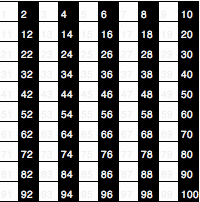Category Archives for "Blog"
Posts that have edge-case related tests
Posts that have edge-case related tests

You come home after a stressful and busy day at work. You muster up the energy to cook, tidy up, catch up on the day’s events and at the end of it, you are exhausted. Then your child comes to you to ask for help with their long division, or history essay or some other very difficult academic task. That is where our private tuition in Wallington comes in.
You don’t want panic to set in as you trawl the farthest reaches of your memory (or Google) to help your child answer questions to things that you have long forgotten about. For many parents, this is a familiar story and on top of all the pressures that come along with parenting, ensuring your child has the best quality education sometimes seems impossible.

At StudyBox, we provide private tuition to children of all ages to ensure they can reach their true academic potential.
Here’s how:
Our tutors provide a personalised approach to learning with a focus on what your child needs. Your child will have the opportunity to concentrate on areas that are challenging and learn in a far more creative and flexible way than they could in the classroom.
Private tutors love what they do. This is why they do it. They will be enthusiastic and confident about the subject that they are teaching and will create a learning environment that is both fun and exciting for you child. This environment will cultivate a more positive and confident mindset, encouraging your child to take responsibility for their education and reduce your need monitor them.
Private tutors are invested as much in your child’s learning as you are and will give you honest and ongoing feedback on their progress. They will keep you informed of your child’s success as well as any areas they are struggling in and will put in place effective strategies to address them.
Finally, private tutors are adept at knowing what examiners are looking for. They can help your child deal with the pressures of the exam environment and teach them how to give the best possible responses. They can work through previous exams and tests to ensure your child has the competitive edge when it comes to exam time.
There is a whole host of reasons why private tuition can help give you piece of mind that your child is getting the best possible education, and lift the weight off your shoulders. For more information on how we can help just get in touch.
Image courtesy of Flickr

There are very few things more important to your child’s education and development in life, than becoming proficient and confident with reading. Children who are well read are often more confident at school, have better communication skills and have higher self-esteem. However, being a good reader is a skill and is not something that comes naturally to all children.

Here are some ways you can help your child improve their reading skills:
The first thing to remember is that all children are different. Some would prefer to read aloud in front of their parents, some might prefer that you read to them, and others might prefer a combination of the two methods. It’s important to know which environment your child is most comfortable reading in so that they are encouraged and motivated to read.
Making sure your child is surrounded by the right reading material is almost as important as the environment they read in. If your child has to suffer through a book which he or she has no interest in, they will not be motivated to want to learn. Whether it’s a story about ghouls and ghosts; a comic book featuring superheroes; or a magazine about wild animals, feeding your child’s passions and interests is the key to their literacy success.
The old adage “practice makes perfect” rings true, especially when it comes to improving your child’s reading. If you set aside regular time for reading with your child, this will eventually become part of their routine.
We all know that when unrealistic targets are set at work, it leaves us stressed, anxious and demotivated to meet our goals. The same thing goes for kids and their attitude to reading. If they are given a book that seems impossible to get through or reading material that they can’t relate to or understand, they are likely to give up before they have even started. However, if you set achievable goals, such as setting a time limit on reading, or reading a chapter of a book per night, your child will be challenged but also motivated to read.
If your child finishes a challenging reading task or shows continued commitment to their reading, it is important to acknowledge and celebrate that success. When you reward their effort, they will want to continue the hard work.
Studybox can teach your child a range of strategies to help them improve their English reading skills. For more information on how we can help just get in touch.
Image courtesy of Personal Creations

With the 2017 GCSE exams only a matter of months away, preparation is vital.
The key to preparation is being organised and realistic with the time you set aside for studying, allowing plenty of time to go over the topics you find the most difficult.
At StudyBox, our students have been working hard practicing past exam papers with the aim of making small improvements each time.
Every student learns in different ways so it is important for our tutors to spend time getting to know each student and finding out how they learn at their best. Some like quiet, some may prefer music to be on in the background. Some may be more visual with their learning, needing to see how things work to understand them. And others need to count or make things with their hands to get it more fully. When you understand how your child best learns, then you can help create the right environment for them at home to reinforce the work they do at our tuition centre.
To get started on your GCSE exam preparation you need to create a revision timetable. It is best to work back from the exam dates so you know how long they have got before they sit the paper. Once you have the schedule from the school, you can plot all the exams on the home calendar and in your diaries/phones and then everyone knows where to go and when.
Setting aside time to go over your notes and doing timed test papers helps to take the nerves away from the exams. Our preparations help to give each child a much-needed boost to their understanding, to help them gain a more secure grade if they need some extra help with the subject.
There are 3 papers for Maths and 2 for English and the GCSE Exam Schedule usually splits them up a bit so you can prepare for each individual paper in turn, rather than the whole subject in one.
We still have some places available in Wallington and Sutton if you would like your teen to come along for an assessment. Book them in today for some targeted tutorials to help them get the grades they need.

The early school years play a major role in shaping a child’s self esteem and confidence. Children with high self esteem typically tackle new challenges more effectively and achieve more success in school. Improving your child’s skills in Maths or English will of course help their progress but the gain in self confidence will be a surprising additional benefit.
Children need a positive, fun and rewarding environment to learn in, especially if they want to gain self confidence. Tuition from StudyBox in our warm and encouraging learning spaces can provide a great balance between teaching children well and building their confidence quickly.
We will be using structured lesson plans and reward systems for goals achieved with every child that studies with us. Whether it’s to help them through their exams, work on particular skills they might be lacking or to give them some new challenges, students may need a tutor in Wallington or Sutton to teach them concepts, methods and strategies to help their understanding and boost their confidence.
Whether you decide to start tuition now or later, getting your child assessed will provide you with valuable information for the future. You’ll find out: your child’s strengths and weaknesses, gaps in their learning as well as suggested strategies for progress and where to go from here.
If your son or daughter has lowered confidence because of difficulties with their English or Maths, then it can be really satisfying to see the change in them after just a few short weeks of tutoring, as they begin to understand more of their school work, and start to get more pleasing results for themselves. A confident child becomes a happy child once again.
For a free no-obligation free trial just click here or fill in our contact form for more information.

One of the hardest maths tasks for young children (and some older ones!) is learning their times tables. A recent poll found that, even among adults, less than half were able to give a quick, confident answer to the sum: 8 x 7 = ?
As parents, you readily identify the need for your children to master their times tables because learning this is a foundation skill. It’s essential to future learning and should be mastered at an early age.
From about 7 years of age, right up to Secondary School, the times tables are the benchmark against which children often measure their maths ability.
Knowing your times tables enables you to estimate answers, to check calculator results for reasonableness, and to find short cuts.
For instance a Secondary School student who knows their times tables will “see” 24 as a number with many factors (1 x 24, 2 x 12, 3 x 8, 4 x 6). They will choose to use it over a number like 25 (that has only 1, 5 and 25 as factors) or 23 (a prime) if they’re investigating an Algebra pattern or looking for a short cut.
Knowing basic facts gives an advantage, even if a calculator is used for the arithmetic. This is why the Times Tables are invaluable for teaching children multiplication and division facts.
For example, if you know that four 2’s make 8, you also know that 8 divided by 4 is 2. Your child will begin to learn their 2 and their 10 times tables in Year 2, progressing to the 3, 4 and 5 times tables in Year 3, and by Year 6 they will need to know all the times tables up to 10, sometimes 12, including the division facts.
If you are helping your child learn their tables at home remember each new table only has a few new facts. If you know the 3 times table, you know 6 x 3 and 7 x 3, for example. Also, you can find the 8 times table by doubling the answers to the 4 times table.
Why not call or fill in our contact form for a free trial to see if we can help if your child is struggling with maths.
Image courtesy of Juanmacuevas (Processing) [GFDL or CC BY-SA 3.0], via Wikimedia Commons